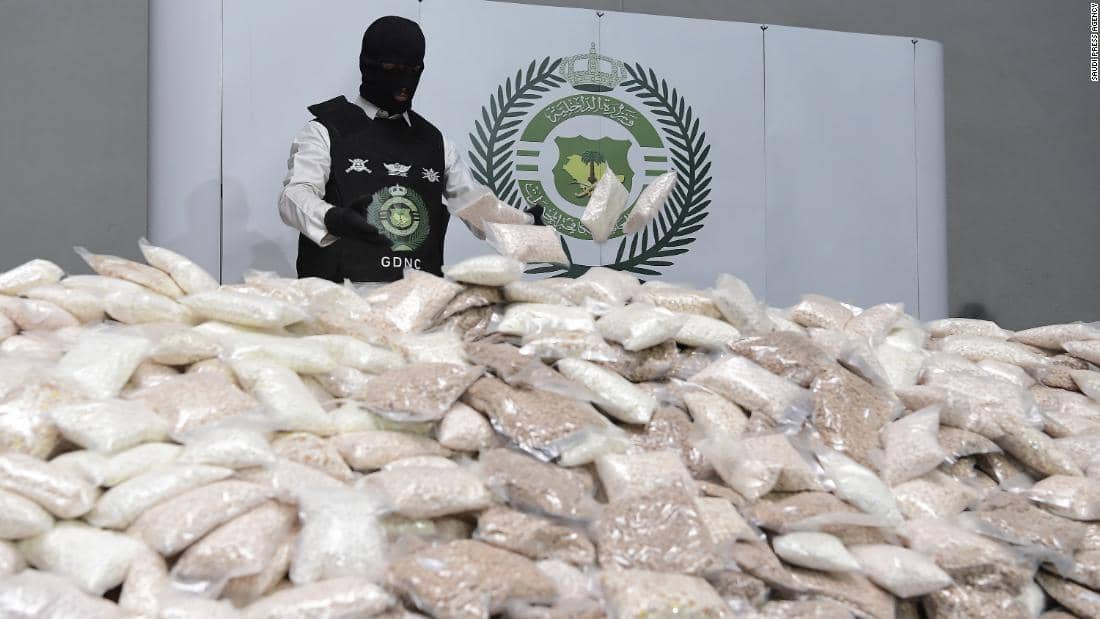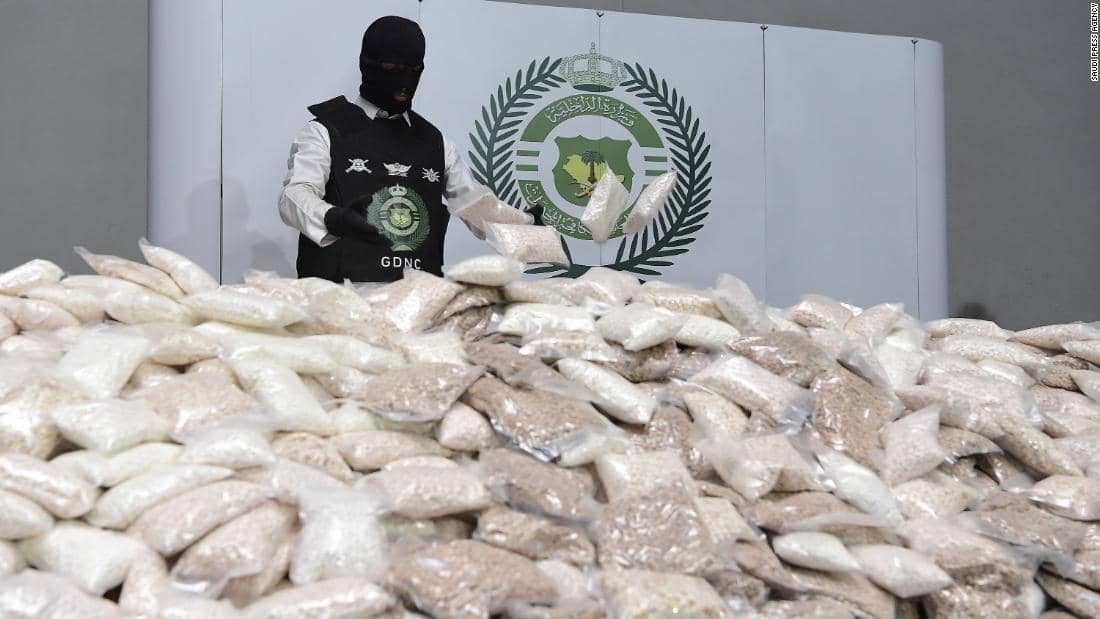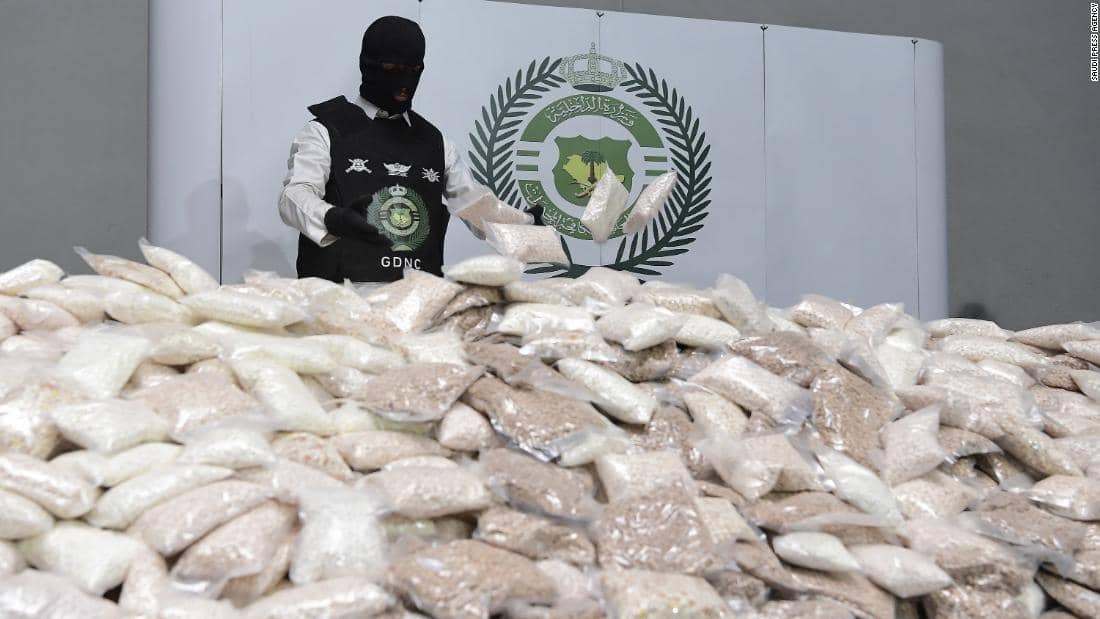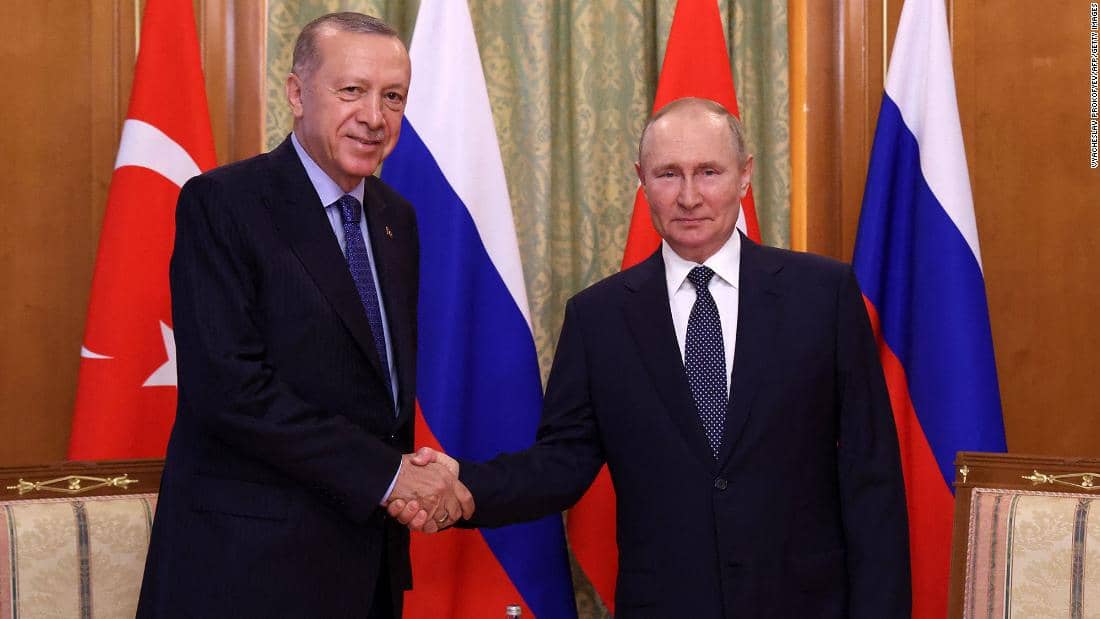Police said he was under the influence of shabu, a methamphetamine, according to local papers. Saudi media has been sounding the alarm lately over the rise in drug use, with one columnist
NASHVILLE, Tenn. (WTVF) — Children in state custody are spending months in Tennessee hospitals because the Department of Children’s Services has no place else to put them.
The children have been medically cleared but tie up hospital beds that could be used by others, especially during times of heightened demand.
One child spent more than nine months — 276 days — living at a children’s hospital after he should have been released.
Some hospital officials tell NewsChannel 5 Investigates they are becoming a dumping ground for kids DCS cannot place.
The Children’s Hospital Alliance of Tennessee (CHAT), which represents children’s hospitals statewide, said in a statement the children “account for many hundreds of additional days in which hospital care is not needed.”
TennCare covers the cost of hospital care for children in DCS custody but would not disclose how much taxpayers are spending on the extended stays.
The Department of Children’s Services said these kids are hard to place in foster care, and because they are medically fragile, they cannot stay in DCS office buildings like some other children have been doing.
It often starts in a pediatric emergency room.
A DCS caseworker takes a child to the hospital with a true medical problem.
Usually the children have just been removed from an abusive or neglectful home.
But once the hospital says the child can leave, DCS says they have no place for the child to go.
State Sen. Heidi Campbell, D-Nashville, was disturbed by the details we showed her.
“Our state is failing. I think we’ve failed these children and we’ve quite frankly failed DCS,” Campbell said.
Examples include a 10-year-old with Muscular Dystrophy who stayed for 103 days at the East Tennessee Children’s Hospital in Knoxville.
DCS could not find a placement for the child after his mother died of COVID and his father could not care for him.
Another 10-year-old with severe autism was housed for 51 days in the same hospital.
He was eventually sent to a facility out of state because DCS did not have a place for him.
And an insulin-dependent diabetic stayed for days because hospital notes reveal “DCS would not take (the child) to office due to insulin shots required.”
“To choose between office floors and hospitals is not a reasonable choice,” Sen. Campbell said.
DCS left a child with a mental health diagnosis at Vanderbilt Children’s Hospital for 270 days.
The child occupied a room from May of 2021 through February of 2022.
The agency left another child at a hospital in Johnson City for 243 days, long after the child should have been released.
DCS Commissioner Margie Quin, who took over the agency in September, told Gov. Bill Lee, R-Tennessee, during budget hearings the agency has been getting calls from hospitals concerned about kids staying long-term.
“These are youth that are extremely difficult to place,” Quin said.
“They are staying 100 days in hospitals, and they are not acutely ill, but they can’t stay in an office, and they are not appropriate in transitional homes,” Quin told the Governor.
DCS has a shortage of foster care homes and as a result has been forced to have some children sleep in office buildings.
A DCS attorney said “children in wheelchairs can also be hard to place. The hardest situations are those with both medical and behavioral/mental health needs.”
Commissioner Quin requested more than $8.7 million to fund “Assessment Treatment Homes” that would be located across the state and would keep some of the medically hard-to-place kids.
“They really need specialized care, and we just don’t have programming for them,” Commissioner Quin said in the budget hearing.
Sen. Campbell can’t believe the state is often choosing between office floors and hospital rooms.
“Let’s be responsible and give the money to DCS that we need to take care of children,” Campbell said.
“Our state has more money right now than we’ve had in decades, in reserves, and there is absolutely no reason why we can’t make sure that we are taking care of our most vulnerable,” Campbell said.
Lee signaled in the budget hearing that he was willing to fund requests from DCS for more money.
But even if the budget request is approved, it is months away from helping — raising questions about what can be done now.
“These are issues we should absolutely be able to deal with in the Department of Children’s Services without sending kids to the hospital,” Senator Campbell said.
Here is the full statement from the Children’s Hospital Alliance of Tennessee (CHAT):
“Children’s hospitals serve as the safety net for the physical and mental health and well-being of children and adolescents. For about a decade, children’s hospitals, in TN and nationally, have seen a significant increase in the number of youth presenting with a primary mental health diagnosis, because of the lack of readily available services and a fragmented delivery system for those services.
Another group of children finding themselves admitted to the children’s hospitals in our state are those in DCS custody. These youth are often brought to pediatric emergency rooms because of a true medical or behavioral need. However, when they are ready for discharge, DCS teams are challenged with finding appropriate placement options, thereby delaying discharge. While these children remain in hospitals, it ties up resources that could be used by other children. Lengths of hospital stays across the state range from several days to months, with one children’s hospital reporting the longest stay of 276 days.
Collectively, these patients account for many hundreds of additional days in which hospital care is not needed. DCS frequently cites limited to no placement options and struggles with insufficient resources to adequately staff and support these children in their care. New DCS Commissioner, Margie Quin, recently acknowledged the issue of long hospital stays for some children and has outlined a plan to tackle this and other issues DCS faces through important measures such as more funding and increased training and increased support for case workers.
Mary Nell Bryan, President of the Children’s Hospital Alliance of Tennessee, said, “The Children’s Hospital Alliance of Tennessee appreciates that the employees of the Department of Children’s Services work hard to address challenges in finding foster homes for children who are medically fragile or dealing with chronic medical conditions, such as diabetes.. There are sometimes not enough appropriate places for such transfers to happen quickly. We appreciate that Commissioner Quin has requested more funding and outlined a plan that includes increased training and increased support for case workers. The work of DCS case workers and other DCS staffers is vitally important. As can also be said about those who work in hospitals, while this work can present challenges, it is also extremely rewarding. We urge families to consider fostering children who are medically fragile or who are dealing with a chronic condition such as diabetes.”
Don't Miss
Police said he was under the influence of shabu, a methamphetamine, according to local papers. Saudi media has been sounding
Having edged seven-time F1 champion Lewis Hamilton to the 2021 world title, young star Max Verstappen can now slow down
Police said he was under the influence of shabu, a methamphetamine, according to local papers.
The kingdom, they say, is one of the largest and most lucrative regional destinations for drugs, and that status is only intensifying.
Captagon was originally the brand name for a medicinal product containing the synthetic stimulant fenethylline. Though it is no longer produced legally, counterfeit drugs carrying the captagon name are regularly seized in the Middle East, according to the European Monitoring Centre for Drugs and Drug Addiction.
The drug was popularized in the kingdom some 15 years ago but has taken off more intensely in the past five years, “perhaps becoming on par with cannabis,” according to Vanda Felbab-Brown, a fellow at the Brookings Institution in Washington DC, who has written on the topic.
Saudi Arabia’s Center for International Communication didn’t respond to CNN’s request for comment.
“Captagon’s amphetamine-type properties are sought out as a coping mechanism that can aid users facing food insecurity in staving hunger, and inducing a euphoric ‘rush’ that users have said to help with traumatic stress,” said Caroline Rose, a senior analyst at the New Lines Institute in Washington, D.C. who has studied the captagon trade. “It’s also been said that these same traits for captagon have been sought out by foreign workers in wealthy Gulf countries like Saudi Arabia, seen to aid work performance.”
“In wealthier consumer markets, the drug has a different appeal, serving as a recreational activity amongst its growing youth population that, despite social reforms… have reportedly struggled with boredom amidst widespread youth unemployment and a lack of opportunities for leisurely activities,” said Rose. “Some consumers have justified captagon as less of a taboo substance, compared to ‘harder’ drugs like opiates and cocaine.”
Since many young people in Saudi Arabia have been taking drugs as a result of boredom and lack of social opportunities, the increased freedoms introduced by Crown Prince Mohammed bin Salman could help reduce some of that use, said Felbab-Brown.
“The important thing is neither to curtail the freedoms, nor to turn concerts into places of dragnets and raids, but rather to educate young people,”.
Over the past few years, a number of drug rehabilitation centers have popped up across the kingdom after the government began licensing private establishments.
“We’re in high demand, unfortunately, “But at least people have an option now, instead of having to go to neighboring countries to seek treatment.”
Despite the presence of rehabilitation centers, Rose says there is little public health messaging or campaigning to raise awareness about captagon.
“While this taboo regarding drug consumption in the kingdom is not going anywhere, the government’s tendency to exclusively securitize this issue and downplay its role as a destination market will be harder to ignore,” she said.
Felbab-Brown says drug policies in the Middle East have focused on the harshest of responses.
“Unlike large parts of the world [that] have walked away from such rigid and mostly ineffective or outright counterproductive policies, the Middle East has often doubled down on them,” she said. “Imprisoning users is ineffective and counterproductive.”
The digest
US says Iran reply on EU proposal for revival of nuclear deal is “not constructive”
- Background: Earlier this week during a press conference in Russia, Iranian Foreign Minister Hossein Amir-Abdollahian said Iran needs guarantees that the US will not withdraw from the nuclear accord and reapply sanctions as happened under the Trump administration.
- Why it matters: The US and Iran have been trading responses to a “final” EU text aimed at reviving the 2015 nuclear deal. EU foreign policy chief Josep Borrell has said he hopes the talks can be concluded in a matter of days. French President Macron also said on Thursday he hopes to conclude the talks in the next few days. It’s unclear how the talks will move forward from here as Iran continues to increase its uranium enrichment and break commitments under the nuclear deal.
Four killed during Shiite clashes in Iraq’s Basra
Clashes between rival Shiite groups killed four people in Iraq’s Basra on Thursday, as the fallout from the country’s worst political violence in years continues, Reuters reported. Basra is the main oil-producing city in Iraq and now violence has spread from Baghdad to the south.
- Background: The violence began earlier this week in Baghdad when powerful Shiite cleric Muqtada al-Sadr announced his resignation from political life. That move set off an intense round of political infighting between Iran-backed Shiite groups and al-Sadr’s supporters. Both sides have been trying to exert control since parliamentary elections in October 2021 saw Iran-backed blocs lose seats to Sadrists. Despite his win, al-Sadr failed to form a government amid opposition from his rivals.
- Why it matters: The episode served as a reminder of the fragility of the government in Baghdad, which remained largely neutral in the crisis, as well as the competing players at home and abroad that seek to control the country’s politics.
Turkish pop star could face up to 3 years in prison for joking about religious schools
- Background: Last week, Gulsen was jailed pending trial after a video circulating on social media showed her making a comment about religious schools in Turkey, according to the state-run Anadolu news agency. During a concert in April, Gulsen said, “[He] graduated from Imam Hatip [religious schools.] That’s where his pervert side comes from,” referring to a person on stage. The singer denied the charge, saying it was a joke, and apologized to those offended by her remarks. She has since been released from custody but placed under house arrest. An Istanbul criminal court will assess the indictment and decide to accept or refuse it. If accepted, the hearings will start and Gulsen will be brought before court.
- Why it matters: Gulsen has previously been targeted by Turkish conservative groups for her revealing stage outfits and support for the LGBTQ community. Her recent arrest sparked outrage and support from fans on social media. Some critics say it’s part of a move by Turkish officials to gain support from their religious and conservative base ahead of elections next year.
Don't Miss
NASHVILLE, Tenn. (WTVF) — Children in state custody are spending months in Tennessee hospitals because the Department of Children’s Services
Tesla is bringing its electric cars to the heart of the oil producing world. The automaker announced Monday that its
But in other ways, some of the region’s countries have prospered immensely as the fighting rages on, adding hundreds of

Having edged seven-time F1 champion Lewis Hamilton to the 2021 world title, young star Max Verstappen can now slow down and reflect on arguably the most thrilling and epic finale to a season in history. The Dutch driver speaks with CNN’s Amanda Davies at the Red Bull headquarters where the team has been celebrating an unforgettable campaign.
Don't Miss
NASHVILLE, Tenn. (WTVF) — Children in state custody are spending months in Tennessee hospitals because the Department of Children’s Services
NASCAR champion Kyle Larson experiences the lowest-lows and the highest-highs Kyle Larson sits down with Coy Wire and reflects on
CNN — Iranian soccer player Sardar Azmoun has been picked in the nation’s squad for the upcoming World Cup in












